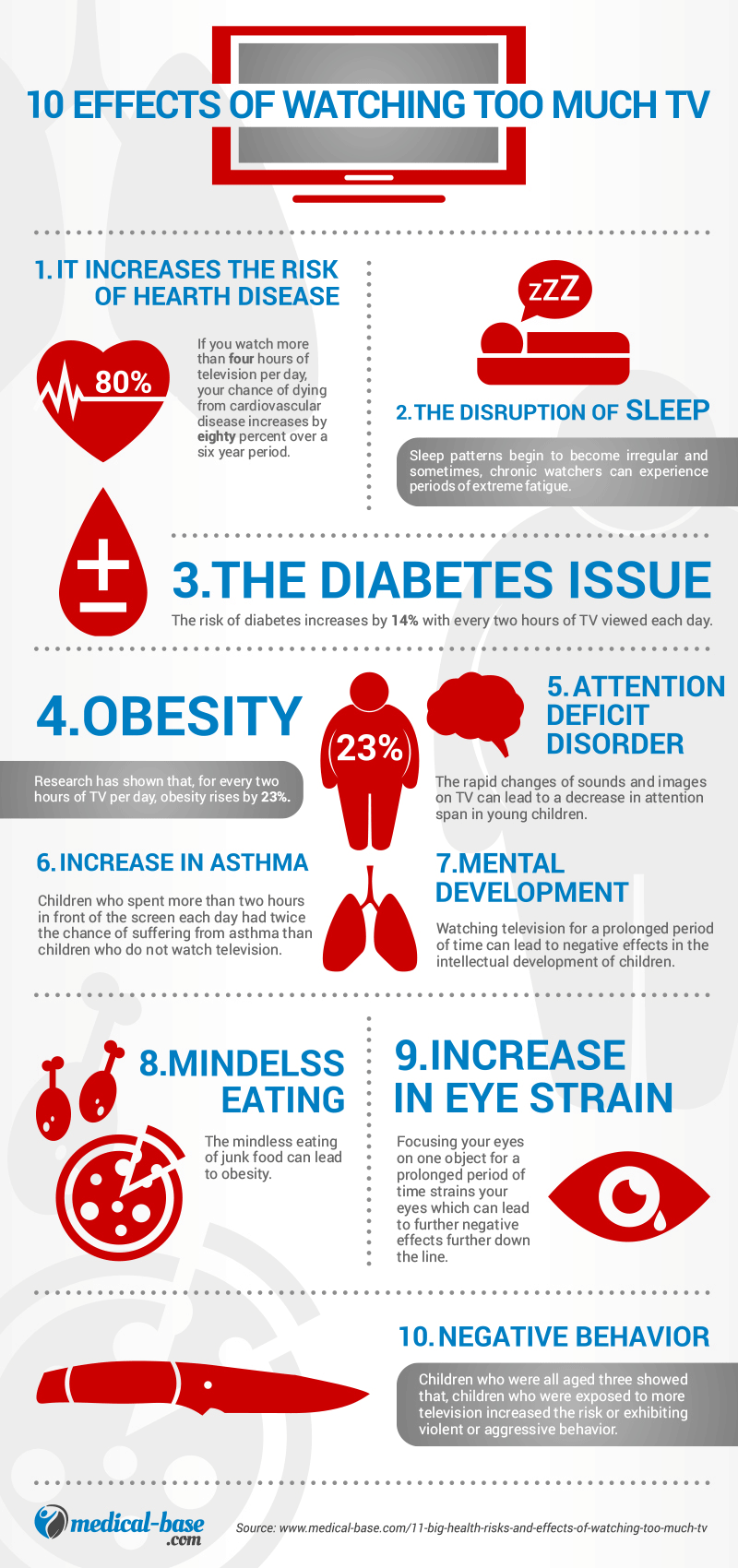[ad_1]
According to scientists, extreme Television viewing is joined to an maximize in coronary coronary heart illness risk irrespective of the genetic makeup of an individual.
Assuming a causal connection, the researchers discovered that 11% of coronary heart illness circumstances can be prevented if people today restricted their Television set viewing to considerably less than 1 hour every day.
A single of the primary coronary heart ailment risk variables is sedentary behavior, i.e. sitting for a lengthy time as opposed to being physically active. In get o look at the association among display screen-based mostly sedentary habits time which involved Television viewing as very well as leisure-time computer utilization, the DNA of a person, and their coronary coronary heart ailment possibility, the scientists analyzed details from the British isles Biobank, a research like much more than 500,000 people today who’ve been prospectively followed up for around 12 many years.
Polygenic possibility scores ended up developed for each individual human being, which is their genetic threat of coronary heart disease established by 300 genetic variants that are regarded to affect their chance of establishing the disease. People today with higher polygenic hazard scores had the highest chance of establishing coronary coronary heart condition.
Persons looking at extra than 4 hours of Television set every day experienced the greatest risk of the condition, irrespective of polygenic chance rating. In comparison to these persons, folks who viewed 2 to 3 hrs of Tv daily had a relative 6% lowered level of acquiring the disorder, while people today who spent fewer than 1 hour of Tv viewing had a relative 16% reduced price.
Time spent leisurely earning use of a laptop didn’t seem to be to affect the danger of the ailment. Individuals who viewed Tv for considerably less than 1 hour everyday experienced significantly less prospect of producing the ailment, impartial of their genetic hazard.
Decreasing the total of time invested viewing Tv can be a practical and comparatively uncomplicated lifestyle adjust that may primarily support folks who are more genetically predisposed to coronary coronary heart ailment to lessen their risk.
According to the scientists, coronary coronary heart sickness is one particular of the major brings about of untimely death, and implementing techniques to support men and women in managing their danger by modifying their lifestyle is critical.
The WHO tips are to cut down the amount of sedentary habits and substitute it with bodily exercise of any sort of depth to keep more healthy. Though it is not probable to point out with certainty that coronary heart disorder danger is enhanced by sitting down even though looking at Television set due to measurement mistake and a assortment of likely confounding things, the review supports the suggestions of the WHO. It implies a uncomplicated, measurable way for people with a substantial genetic coronary coronary heart disorder hazard as perfectly as the general population to attain this purpose.
According to the researchers, numerous opportunity causes could demonstrate the affiliation involving watching Tv and coronary heart disorder risk, and specifically why no association was discovered with computer usage. Viewing Tv is most likely to get area in the night after evening meal, commonly the most calorific food, resulting in better lipid and glucose concentrations in the blood. People also commonly snack extra when Television set viewing in comparison to when browsing the world wide web. Ultimately, Tv viewing is usually prolonged, while people using their desktops are most likely a lot more most likely to choose extra action breaks.

Want to use our illustrations or photos on your web-site? Ideal simply click on graphic for embed code
[ad_2]
Source hyperlink






More Stories
Health And Fitness Guide: What Are Fitness Activity Trackers
Nature’s Fitness and Weight Loss Center – Water Workouts
Keep Your Heart Healthy Naturally With Cardio E-Z